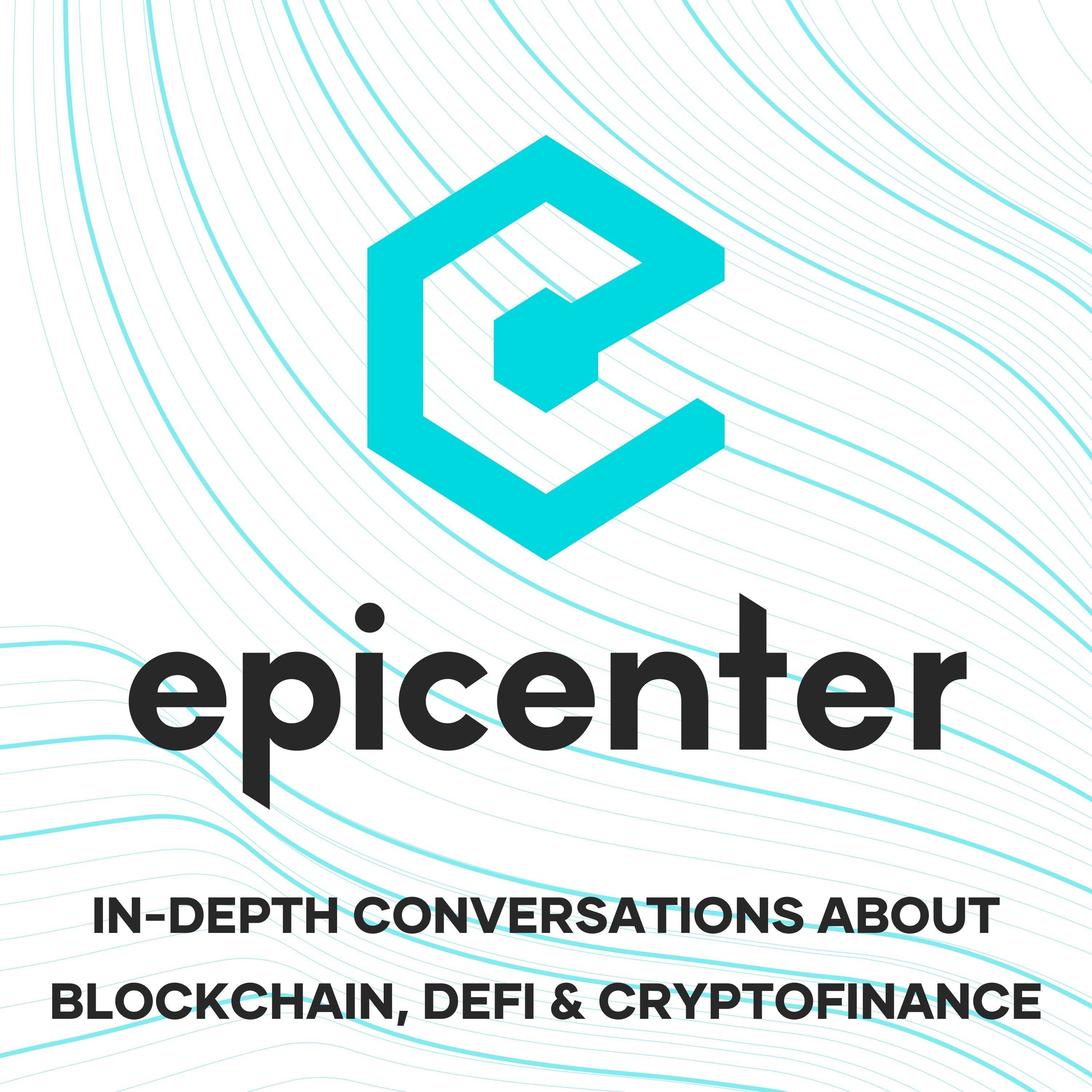

Epicenter - Learn about Crypto, Blockchain, Ethereum, Bitcoin and Distributed Technologies
Epicenter Media Ltd.
Epicenter brings you in-depth conversations about the technical, economic and social implications of cryptocurrencies and blockchain technologies. Every week, we interview business leaders, engineers academics and entrepreneurs, and bring you a diverse spectrum of opinions and points of view.
Epicenter is hosted by Sebastien Couture, Brian Fabian Crain, Friederike Ernst, Meher Roy and Felix Lutsch. Since 2014, our episodes have been downloaded over 8 million times.
Epicenter is hosted by Sebastien Couture, Brian Fabian Crain, Friederike Ernst, Meher Roy and Felix Lutsch. Since 2014, our episodes have been downloaded over 8 million times.
Episodes
Mentioned books

Feb 1, 2026 • 58min
Is The Future of Ethereum Centralised and Censored?
Thomas Thiery, an Ethereum Foundation researcher and author of EIP-7805 (FOCIL), works on protocol design for censorship resistance and MEV mitigation. He explains how MEV centralized block production and maps where censorship can happen. He introduces FOCIL’s validator-driven inclusion lists to force transaction inclusion. They compare public vs private mempools and weigh FOCIL against encrypted mempool approaches.

21 snips
Jan 25, 2026 • 1h
How Will Stablecoins Replace Traditional Banking
Zach Abrams, CEO and co-founder of Bridge and fintech veteran who built stablecoin rails and wallets. He explores why stablecoins can make payments faster and cheaper than legacy rails. He explains stablecoin orchestration, limits of the USDC/USDT duopoly, the rise of regionally focused coins, and why wallets could become the new primary bank account.

Jan 15, 2026 • 39min
Buidl Europe 2026: The State of Decentralization
Join Ben Lakoff of Bankless Ventures, Matthew Arrow from Dark Forest, and Aurora Orellana of G20 Strategies as they explore the future of decentralization. They debate whether Cypherpunk values like self-custody can survive as institutions influence adoption. The panel also tackles the FATF's impact on individual freedoms and discusses the 'DeFi Mullet'—a blend of centralized fronts with decentralized operations. They highlight the importance of jurisdictional competition and the evolving definitions of privacy in the blockchain landscape.

Jan 9, 2026 • 42min
The Death of Altcoins & Bitget’s New "Universal Exchange"
Gracy Chen, CEO of Bitget and a former journalist and mathematician, discusses her journey to Bitget’s top spot. She reveals the ambitious vision of a 'Universal Exchange' that blends crypto, equities, and commodities. Gracy delves into the fading dominance of altcoins, emphasizing a shift towards blue-chip assets with real-world utility. The conversation also highlights how Bitget uses AI-driven tools for trading and user acquisition, as well as the crucial need for global regulatory compliance as they plan for market expansion.

16 snips
Dec 31, 2025 • 53min
2025 Rewind: End of the Infinite Money Glitch and Looking Ahead to 2026
Reflecting on 2025, the hosts dive into the end of the 'infinite money glitch', signaling a shift to real revenue in the crypto space. They analyze the brutal altcoin market reset and the mainstream entrance of established players like Revolut and Stripe. Discussions include the quantum threat to Bitcoin and its cryptographic challenges. As they gaze into 2026, predictions of growing real-world assets and the evolving landscape of decentralized finance emerge, hinting at a cautious yet optimistic future.

Dec 26, 2025 • 56min
Solving The AI Black Box: ZK-Proofs in Defence Tech
Ismael Hishon-Rezaizadeh, CEO of Lagrange Labs, is a pioneering applied cryptographer specializing in zero-knowledge proofs. He discusses how ZK technology has evolved beyond crypto to enhance defense, including its applications in autonomous drone swarms and national security. The concept of 'Accountable Autonomy' is introduced to ensure AI decision-making transparency. They also explore the US-China tech rivalry, the need for domestic chip manufacturing, and how cryptographic advances could secure crucial military operations.

Dec 18, 2025 • 1h 5min
Aztec's Rebirth, The $61M Token Sale & Programmable Privacy on Ethereum
Joining the conversation is Zac Williamson, co-founder and CEO of Aztec, a cutting-edge layer-2 network focused on programmable privacy for Ethereum. Zac shares the bold decision to dismantle Aztec Connect, emphasizing the importance of true privacy over incremental changes. He discusses their innovative hybrid architecture, the necessity of decentralized sequencers for security, and challenges conventional wisdom about crypto development. Zac also contrasts the privacy landscape in the U.S. with growing regulatory control in Europe, framing Aztec as a crucial defense against surveillance.

Dec 11, 2025 • 54min
Will stablecoins end the US debt Crisis?
Joe Lubin, co-founder of Ethereum and CEO of ConsenSys, shares insights on the chaotic shift toward blockchain adoption among traditional institutions. He discusses how the US might leverage stablecoins to manage its debt, posing a potential lifeline for the dollar. Lubin also reveals ConsenSys's transformation from an organic hub to a structured firm, and he envisions MetaMask evolving into a full-service bank. He highlights Linea's commitment to permissionless innovation, setting it apart in the decentralized landscape.

20 snips
Dec 3, 2025 • 1h 22min
What will Quantum Computing Change?
John Lilic, an Ethereum OG and consensus engineer, joins forces with Stefano Gogioso, an Oxford physicist and co-founder of NeverLocal, to explore the impending impact of quantum computing on cryptocurrency. They delve into the alarming vulnerabilities in crypto security, revealing how quantum algorithms could break current encryption methods. The duo discusses 'harvest now, decrypt later' threats to coin privacy and introduces groundbreaking 'Quantum Money' that leverages physics, not consensus, to combat double-spending. Prepare for a mind-bending look at our digital future!

Nov 27, 2025 • 45min
DevConnect 2025: Inside The Biggest Ethereum Event in History
Nathan Sexer, lead of the DevConnect and Events team at the Ethereum Foundation, shares insights from the monumental DevConnect 2025 in Argentina with 20,000 attendees. He discusses the innovative World's Fair format that allowed participants to interact with tangible Ethereum applications. Argentina's vibrant crypto culture, shaped by hyperinflation, was a perfect choice for hosting. The internet blackout became an unexpected catalyst for real connections, and plans are underway for DevCon in Mumbai, focusing on India's burgeoning developer community.


